Top 10 Foods Highest in Manganese

Manganese is an essential trace mineral required by the body for a wide variety of functions including digestion, reproduction, antioxidant defense, immune function, energy production, and macronutrient metabolism. (1,2)
Manganese is well-regulated in the body and deficiency or toxicity is usually due to kidney problems, gastrointestinal issues, or rare genetic conditions. (3,4) A deficiency of manganese is usually seen in the form of high blood pressure, irregular heartbeats, and weak bones (due to lack of calcium). (3) Conversely, too much manganese affects the brain leading to muscle tremors. (5)
In general, most people will not experience any problems from either manganese deficiency or toxicity. (2)
Foods high in manganese include mussels, wheat germ, tofu, sweet potatoes, nuts, brown rice, lima beans, chickpeas, spinach, and pineapples. The current daily value (DV) for manganese is 2.3mg. (6)
Below is a list of high manganese foods sorted by a common serving size, for more, see the list of high manganese foods by a 100 grams serving size, and the complete nutrient ranking of over 200 foods high in manganese .
List of High Manganese Foods
-
 1. Mussels + Add
1. Mussels + Add
Manganese
per 3ozManganese
per 100gManganese
per 200 Calories5.8mg
(251% DV)6.8mg
(296% DV)7.9mg
(344% DV)More Shellfish High in Manganese
- 83% DV in 20 small clams
- 45% DV in 3oz of oysters
- 19% DV in 3oz of cooked crayfish
See all fish and seafood high in manganese.
-
2. Toasted Wheat Germ + Add
Manganese
per OzManganese
per 100gManganese
per 200 Calories5.7mg
(246% DV)20mg
(868% DV)10.4mg
(454% DV)Sprinkle toasted wheat germ on top of cereal, salads, and toast.
-
 3. Firm Tofu + Add
3. Firm Tofu + Add
Manganese
per CupManganese
per 100gManganese
per 200 Calories3mg
(129% DV)1.2mg
(51% DV)1.6mg
(71% DV)More Soy Products High in Manganese
- 94% DV in 1 cup of tempeh
- 39% DV in 1 cup of green soybeans (edamame)
-
 4. Sweet Potatoes + Add
4. Sweet Potatoes + Add
Manganese
per Cup MashedManganese
per 100gManganese
per 200 Calories2.5mg
(110% DV)1mg
(43% DV)2mg
(85% DV)More Vegetables High in Manganese
- 42% DV in 1 cup of collards
- 37% DV in 1 cup of peas
- 34% DV in 1 cup of okra
See all vegetables high in manganese.
-
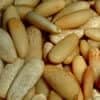 5. Pine Nuts + Add
5. Pine Nuts + Add
Manganese
per OzManganese
per 100gManganese
per 200 Calories2.5mg
(109% DV)8.8mg
(383% DV)2.6mg
(114% DV)More Nuts and Seeds High in Manganese
- 94% DV per oz of hemp seeds
- 76% DV per oz of hazelnuts
- 56% DV per oz of pecans
See all nuts and seeds high in manganese.
-
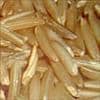 6. Brown Rice + Add
6. Brown Rice + Add
Manganese
per CupManganese
per 100gManganese
per 200 Calories2.1mg
(93% DV)1.1mg
(48% DV)2mg
(85% DV)More Whole Grains High in Manganese
- 67% DV in 1 cup of whole wheat pasta
- 59% DV in 1 cup of oatmeal
- 51% DV in 1 cup of quinoa
See all whole grains high in manganese.
-
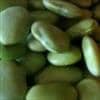 7. Lima Beans + Add
7. Lima Beans + Add
Manganese
per Cup CookedManganese
per 100gManganese
per 200 Calories2.1mg
(93% DV)1.3mg
(54% DV)2mg
(89% DV)See all vegetables high in manganese.
-
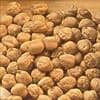 8. Chickpeas (Garbanzo Beans) + Add
8. Chickpeas (Garbanzo Beans) + Add
Manganese
per CupManganese
per 100gManganese
per 200 Calories1.7mg
(73% DV)1mg
(45% DV)1.3mg
(55% DV)More Beans High in Manganese
- 49% DV in 1 cup of large white beans
- 43% DV in 1 cup of navy beans
- 43% DV in 1 cup of lentils
See all beans high in manganese.
-
 9. Spinach + Add
9. Spinach + Add
Manganese
per Cup CookedManganese
per 100gManganese
per 200 Calories1.7mg
(73% DV)0.9mg
(41% DV)8.1mg
(353% DV)See all vegetables high in manganese.
-
10. Pineapple + Add
Manganese
per CupManganese
per 100gManganese
per 200 Calories1.5mg
(67% DV)0.9mg
(40% DV)3.7mg
(161% DV)More Fruits High in Manganese
- 40% DV in 1 cup of blackberries
- 36% DV in 1 cup of raspberries
- 29% DV in 1 cup of grapes
- 28% DV in 1 cup of strawberries
- 22% DV in 1 cup of blueberries
See all fruits high in manganese.
Printable One Page Sheet
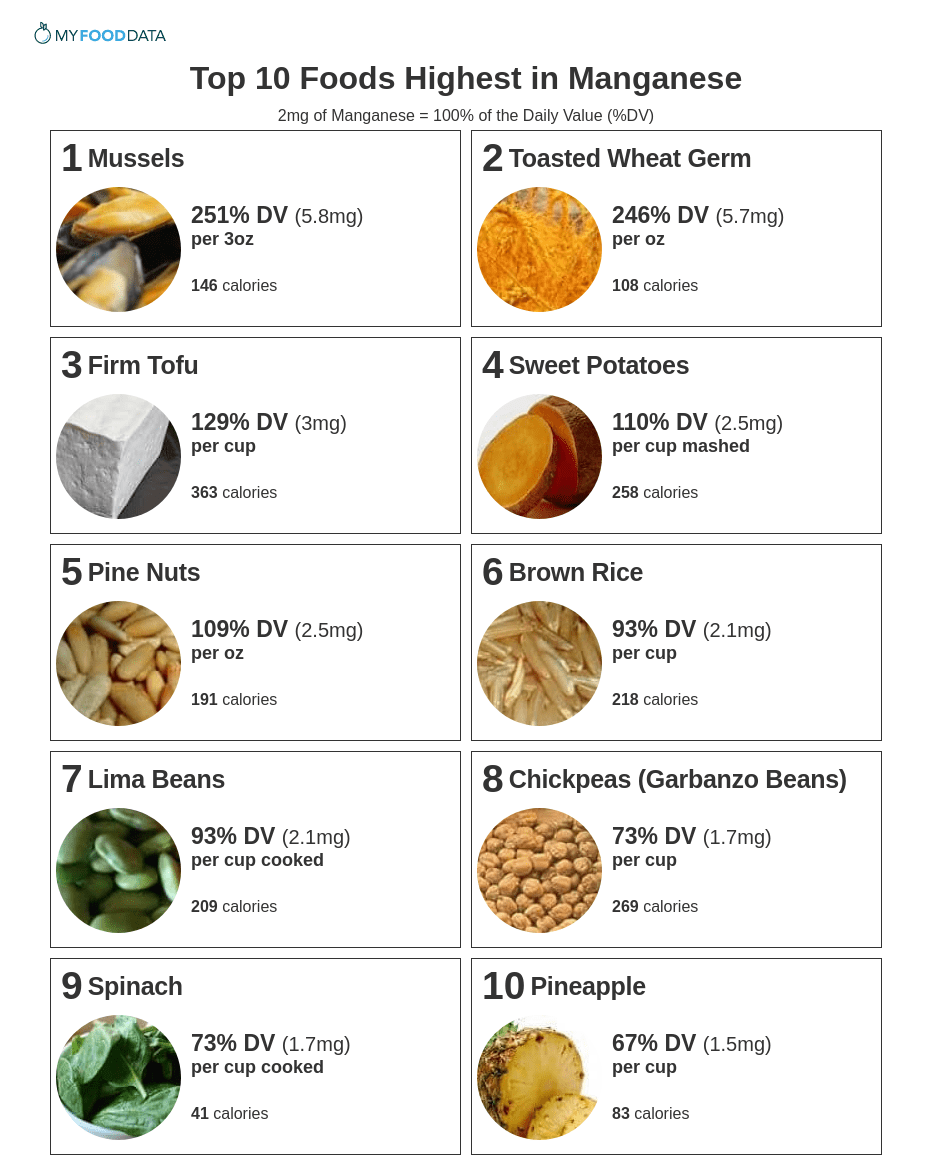
Manganese Foods by Nutrient Density (Manganese per Gram)
| Food | Serving | Manganese |
|---|---|---|
| 1. Toasted Wheat Germ + | 100 grams | 868% DV (20mg) |
| 2. Dried Pine Nuts + | 100 grams | 383% DV (8.8mg) |
| 3. Cooked Blue Mussels + | 100 grams | 296% DV (6.8mg) |
| 4. Dry Roasted Hazelnuts + | 100 grams | 241% DV (5.6mg) |
| 5. Dried Pumpkin And Squash Seeds + | 100 grams | 198% DV (4.5mg) |
| 6. Unsweetened Baking Chocolate + | 100 grams | 181% DV (4.2mg) |
| 7. Dry Roasted Pecans + | 100 grams | 171% DV (3.9mg) |
| 8. Walnuts + | 100 grams | 148% DV (3.4mg) |
| 9. Dried Coconut (Unsweetened) + | 100 grams | 119% DV (2.7mg) |
| 10. Toasted Whole Wheat Bread + | 100 grams | 111% DV (2.5mg) |
Manganese Requirements By Age and Gender
The adequate intake (AI) for manganese ranges from 1.2mg to 2.6mg per day. (7) The daily value for manganese is 2.3mg per day. (6)
| Life Stage | AI |
|---|---|
| Infants* | |
| 0-6 months old | 0.003mg |
| 7-12 months old | 0.6mg |
| Children | |
| 1-3 years old | 1.2mg |
| 4-8 years old | 1.5mg |
| Males | |
| 9-13 years old | 1.9mg |
| 14-18 years old | 2.2mg |
| 19-50 years old | 2.3mg |
| 50+ years old | 2.3mg |
| Females | |
| 9-13 years old | 1.6mg |
| 14-18 years old | 1.6mg |
| 19-50 years old | 1.8mg |
| 50+ years old | 1.8mg |
| Pregnancy | |
| 14-18 years old | 2mg |
| 18+ years old | 2mg |
| Lactation | |
| 14-18 years old | 2.6mg |
| 18+ years old | 2.6mg |
Source: Dietary Reference Intakes for Manganese.
From the Nutrient Ranking Tool
Use the ranking tool links below to select foods and create your own food list to share or print.
- Foods High in Manganese
- Foods Low in Manganese
- Vegetables High in Manganese
- Fruits High in Manganese
- Vegetarian Foods High in Manganese
- Nuts High in Manganese
- Grains High in Manganese
- Beans High in Manganese
- Dairy High in Manganese
- Breakfast Cereals High in Manganese
- Fast Foods High in Manganese
View more nutrients with the nutrient ranking tool, or see ratios with the nutrient ratio tool.
Related
Data Sources and References
- Nyarko-Danquah I, Pajarillo E, Digman A, Soliman KFA, Aschner M, Lee E. Manganese metabolism in humans Molecules. 2020 Dec 12;25(24):5880. doi: 10.3390/molecules25245880. 33322668
- Erikson KM, Thompson K, Aschner J, Aschner M. Manganese: Its Role in Disease and Health Pharmacol Ther. 2007 Feb;113(2):369-77. doi: 10.1016/j.pharmthera.2006.09.002. Epub 2006 Sep 22. 17084903
- Rude RK. Clinical manifestations of magnesium deficiency Endocrinol Metab Clin North Am. 1993 Jun;22(2):377-95. 8325293
- Graber ML. Magnesium deficiency: pathophysiologic and clinical overview Am J Kidney Dis. 1995 Jun;25(6):973. doi: 10.1016/0272-6386(95)90587-1. 7771497
- Nyarko-Danquah I, Pajarillo E, Digman A, Soliman KFA, Aschner M, Lee E. Manganese metabolism in humans Molecules. 2020 Dec 12;25(24):5880. doi: 10.3390/molecules25245880. 33322668
- Erikson KM, Thompson K, Aschner J, Aschner M. Manganese: Its Role in Disease and Health Pharmacol Ther. 2007 Feb;113(2):369-77. doi: 10.1016/j.pharmthera.2006.09.002. Epub 2006 Sep 22. 17084903
- U.S.FDA - Daily Value on the New Nutrition and Supplement Facts Labels
- National Library of Medicine - Dietary Reference Intakes for Vitamin A, Vitamin K, Arsenic, Boron, Chromium, Copper, Iodine, Iron, Manganese, Molybdenum, Nickel, Silicon, Vanadium, and Zinc.
Simplify Nutrition Tracking with MyFoodData!
Speedy Tools and Detailed Data FREEEasily analyze your meals to find the best foods for your goals.
✅ Use our recipe nutrition calculator and nutrition comparison tool.
✅ Access expert nutrition data tools and in-depth articles.
✅ Log foods and organize your recipes with a free account.


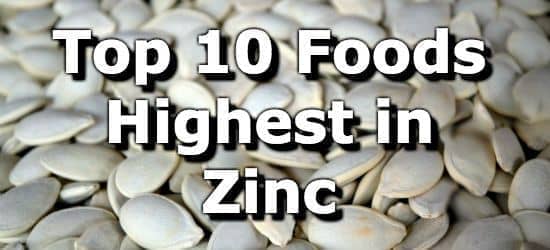 Next ➞
Next ➞
